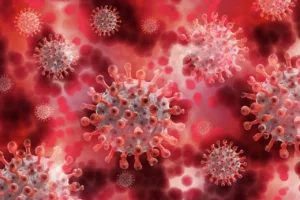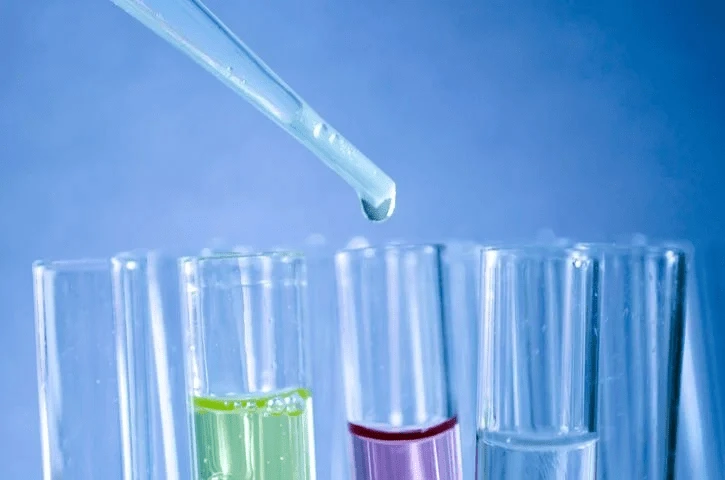Biointelligent sensor to measure viral activity: BioProS
Author
Marlene Kopf
Publication Date
August 26, 2022
Keywords
bioproduction processes
viral activity
biointelligent sensor
Next-generation therapeutics
Microfluidics for biointelligence
therapeutic applications
Your microfluidic SME partner for Horizon Europe
We take care of microfluidic engineering, work on valorization and optimize the proposal with you
A biointelligent sensor to advance digitalization in the production of cutting-edge therapeutics and create safe bioproduction processes.
A biointelligent sensor to measure viral activity: introduction

Digitalization is becoming increasingly important for industries of all kinds and can also benefit virus production for vaccines.
In the medium term, it will cover the entire manufacturing chain from the beginning and take advantage of all the advances made in smart and batch manufacturing in recent years.
This will lead to a close linkage of technical, information, and biological systems, also known as biointelligent systems.
Next-generation therapeutics rely on a heterogeneous class of biological molecules ranging from viruses to whole genetically modified eukaryotic cells.
This puts immense pressure on developing the underlying production processes and requires new, sustainable, and resilient methods to produce these biological products.
Besides vaccine production, viruses are becoming increasingly important in other areas of the biopharmaceutical industry. The spectrum of therapeutic applications now also includes gene therapies or oncological diseases.
In this context, producing viruses and virus-like particles in cell culture for clinical use requires complex multi-step processes that highly demand product safety.
The production of the necessary viral vectors as starting material still involves many expensive and error-prone steps. Viruses are produced in complex bioproduction processes that must be optimized for each virus to make high-quality preparations.
Microfluidics for biointelligence, merging engineering, biology and information technology: project description

Digitalization of bioproduction processes can support the production of such high-quality products.
Biointelligent sensors are an excellent way to enable new quality control strategies.
The project BioProS, coordinated by Fraunhofer IPA, aims to develop a continuous, real-time biohybrid sensor technology that can be adapted to several specific analytes as a platform technology.
This way, the sensor system will be applied in different industries and production environments.
As part of the project, we implemented a microfluidic flow control platform for the targeted supply of samples and reagents to the biointelligent sensor. We also developed a mini pump for cell culture.
Related content & results from this project
As a result of the Biopros project, the MIC developed the following packs and instruments:
- Mini pump for cell culture,
- PMMA device station,
- Thermoplastic molding packs,
- Polystyrene molding setup,
- Polycarbonate molding setup,
- COC molding setup.
In addition, we have published a review about materials and fabrication techniques of microfluidic chips.
Funding
This project has received funding from the European Union’s Horizon research and innovation program under HORIZON-CL4-2021-DIGITAL-EMERGING-01-27, grant agreement no. 101070120 (BioProS).
Start date: 1 July 2022
End date: 30 June 2026
Overall budget: €6,317,756.25


Check our Projects
FAQ – Biointelligent sensor to measure viral activity: BIOPROS
What is the actual problem that BioProS is attempting to solve?
Therapeutic viruses and viral vectors biomanufacturing continues to operate using sparse, offline measurements. BioProS designs a real-time, continuous biohybrid sensor to identify cell-based cycles of virus infection directly on the production line, enabling faster, smarter control of yield and quality.
What is meant by a biointelligent sensor?
Due to its combination of a designed biological readout (cell-based assessment of infection status), physical/optical transduction, and on-board analytics. It is not only the goal to quantify a single analyte, but also to inform the interpretation of infection status and to inform decisions related to processes on the ground.
What would be the practical effect of this on the production of the virus and vectors?
State detection during the inline can reduce feedback cycles (hours/days) to minutes, decrease failure batches, and equalize important quality parameters across sites. Practically, it implies earlier identification of undesired infection kinetics, improved timing of harvest, and increased lot-to-lot reproducibility – three thorns in the flesh of AAV and oncolytic virus production.
What actually is the sensor seeing of a viral activity?
The designed architecture combines direct optical sensing with a cellular-based measurement concept. Instead of measuring a proxy towards the end of the process, it measures the interaction between infection on the cellular scale-in effect, it makes living cells the front-end of the measurement chain.
What is the relationship of microfluidics?
Microfluidics can perfuse producer cells, be able to expose them to process media, and provide optical paths that are stable, so that you require reliable, continuous readouts. It also implies reduced sample volumes, increased mass transfer, and on-chip multiplexing of conditions during development or tech transfer for consortium partners. It is a place MIC regularly uses to prototype and industrialize devices so that the assays can survive the transition from TRL 3-4 to hardware that can be manufactured.
Who is involved, and what is their coordination model?
BioProS is an EU-funded project with management by Fraunhofer institutes and university partners; it specifically aims to develop a platform sensor capable of being integrated with upstream bioprocessing. Roles in industry and academia are divided into optics, cell-based assay design, control/AI, and integration.
What will be considered as a success by the month 48?
Three elements: (i) a sound and sustained monitoring of the infected condition in a concerned producer regime; (ii) judged benefits in operation regulation (e.g., superior harvesting time and less dispersion); and (iii) a conveyor route between development scale to actual bioproduction infrastructures, including records and quality management guidelines.
What is the difference compared to traditional at-line tests (qPCR, ELISA, TCID50)?
Classical assays are vigorous and require substantial amounts of sample; they provide snapshots. BioProS targets sustained paths -predicting the progression, leveling off, and decreasing infection in real time to the point that the control algorithms can intervene before it becomes costly. It does not touch on gold-standard analytics; it complements them.
How is that related to the Microfluidics Innovation Center (MIC) adding to a consortium such as this?
The fundamental philosophy of MIC is microfluidic engineering: the ability to control the entire flow, chip design for optical functions, and manufacturability. We also jointly write work packages, exploitation plans, and verification protocols on EU projects. According to our own benchmarking of official success rates for submitted proposals, consortia that incorporate MIC early are likely to increase the rate of successful proposals by about 2x, in part because reviewers can track a clear pathway from concept to prototype to deployment. (Prototypes are also built by ourselves.)
I will be preparing a Horizon Europe or EIC proposal- how do I fit?
Bring or compute a real pain problem (e.g., detect MOI drift in 20 min, multiplex two infection indicators in flow). MIC can board the chip/sensor integration, layout validation experiments, and add to the technical account and budgets – particularly bioprocess sensing, organ-on-chip, and inline optics.